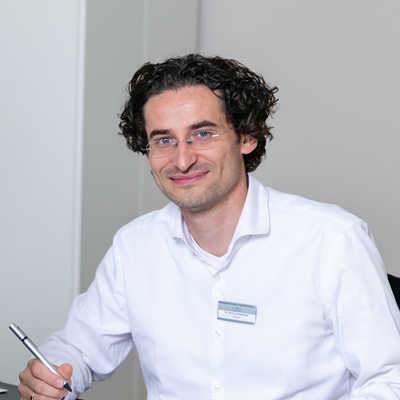Private clinic for trauma / PTSD
Joy in life again
Critical life events, traumatic experiences, or chronic psychological stress: trauma triggers an acute stress response in the body – the pulse rises, the heart beats faster, blood sugar levels rise, and increased stress hormones are released. The natural processing procedures to cope with situations are blocked by extreme stress in the brain, which is why many people lose the memory of an accident or other traumatic experience.
We specialize in treating stress-related disorders such as trauma, trauma sequelae, and PTSD. Our treatment concept is accompanied and supported by Prof. Dr. med. Christian Otte, Deputy Clinic Director at Charite Berlin. Professor Otte cooperates, among others, with the Director of the Department of Psychiatry at NYU, Prof. Charles Marmar, one of the world’s leading scientists in the field of post-traumatic stress disorder. Learn more about it in our patient information on PTSD or get advice from our experts at 00493996 140490.
Trauma symptoms
The immediate reaction to a particularly stressful situation is often initially experienced as a state of shock or crisis and is characterized by a mixed and changing picture of different symptoms
- Emotional numbing
- Depressive symptoms
- Anxiety, irritability, and jumpiness
- Despair
- Retreatment and internal apathy
- Hyperactivity
- Sleep disturbances and difficulty concentrating
- Distortion of reality and self-awareness
- Nightmares and flashbacks
- Partial amnesia
Consequences of trauma
As a result of the stress and in response to the associated symptoms of trauma, the following concomitant disorders are pervasive, either individually or in combination:
- Addictive disorders
- Depression
- Anxiety disorders
- Dissociative disorders
- Psychosomatic complaints
Causes of trauma
Many possible situations can have a traumatic effect: the sudden death of a relative, involvement in an accident – as a victim or eyewitness. First responders to serious traffic accidents, doctors, police officers, firefighters, or soldiers in war zones often experience highly traumatic situations during their missions, which result in severe psychological stress.

